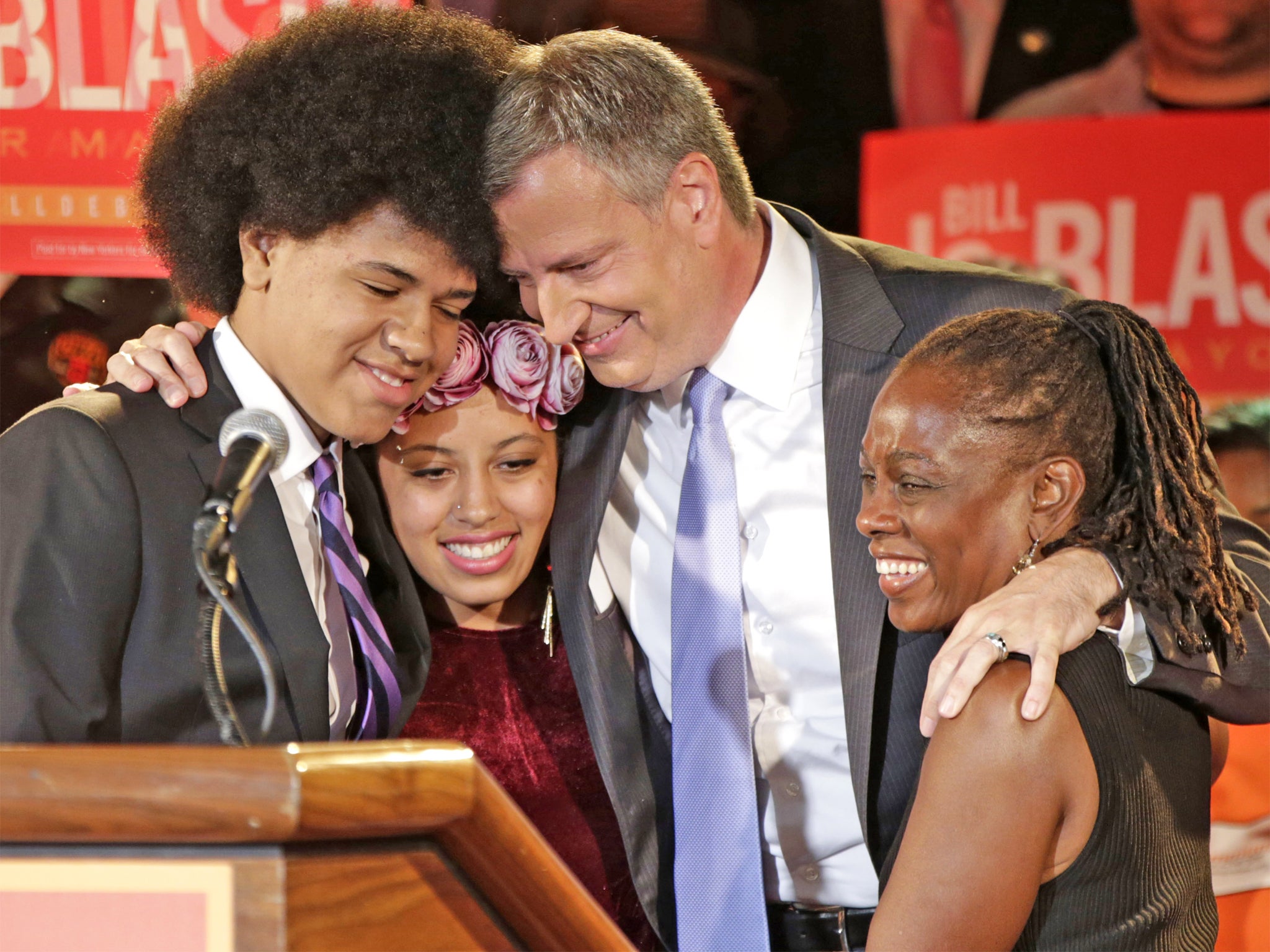A New York Mayor to admire: Bill de Blasio could teach a thing or two to Boris Johnson's successor
De Blasio proves Mayors can take on the rich and the City – and win in the process

It would be too glib to call it a tale of four cities. But all fans of a good slogan – and anyone with a serious interest in becoming Mayor of London in 2016 – should be paying very close attention to New York City this week.
Bill de Blasio is on the cusp of a landslide victory to become the city's first Democratic Mayor in twenty years. He is doing so on the most left-wing platform in American politics, under the slogan “A Tale of Two Cities”, centering his campaign on the idea that New York has been split between haves and have-nots. (For Rupert Murdoch's response and a taste of the panic this inspires in conservative America, see Monday's front page of The New York Post). His victory should echo loudly across the pond to anyone who, like myself, believes a very similar problem exists in London. De Blasio is about to prove - in New York, London's sister city - that would-be Mayors can take on the rich, the City and the established wisdom of deference towards both, and win by a mile in doing so.
Like almost all visitors to NYC, my view of the city is dominated by Manhattan - the beauty of Central Park at one end, the muscular towers of Wall Street at the other. But not only does this picture skip over the entrenched inequality which characterises much of Manhattan, it ignores the fact that New York City has five boroughs and that the others - Brooklyn, Staten Island, Queens and the Bronx - have long been neglected. Just like London, poverty is the closest neighbour to wealth: 46 per cent of New Yorkers are either at or close to the poverty level. Even as Wall Street has recovered from the financial crash to become even stronger than before and as expensive restaurants and bars flourish to entertain those doing well in the city, not far away others are others struggling just to keep their heads above water.
De Blasio relishes the fight. At 6'5 he is a towering figure, and his message rings out at rallies across the city - “Yes it's bold” to tax the richest more to fund universal pre-K (nursery) education, to build affordable housing, to create a living wage law. But surveying a beaten field of more established Democratic candidates, de Blasio can afford to be bold - perhaps reflecting that it was this very radicalism which created the last-minute momentum (driven by an exceptionally effective digital media campaign, run by Obama alumni) which swept him past the frontrunners to clinch a last-second primary victory. The downfall of Christine Quinn, long-presumed heir apparent to Mayor Bloomberg, was her perceived closeness to the current establishment, contrasting poorly against de Blasio as a convincing voice of change.
It could be argued that the electoral math is pretty simple - that the 99 per cent have more votes than the 1 per cent. Either way, London politicians should take note of a man who has stood up to the sacred cow of The City and won. “People kept telling us what we couldn't do”, de Blasio recalls. Now the others have come with him, the entire debate has been moved decisively to the left, and de Blasio has local Democratic politics lined up in support behind him.
Jumping across the pond, the challenges which London faces are stark. Housing, housing, housing tops the list, and will continue to do so as long as London property is allowed to become the world's reserve currency, and as upcoming generations (including my own) are left alone to face the near-impossibility of getting onto the housing ladder in our own city. Education is not far behind, not only because of worrying shortages in school places but again from a sense of two cities - the teacher in a comprehensive fighting an unfair battle against his colleagues at Westminster or St Paul's, out-gunned every day in terms of facilities, resources, class sizes and old-school influence. More broadly, there is the simple fact that London - reflecting a damaging division across the UK - has become deeply unequal, both in terms of opportunity and outcome, and that millions are struggling simply to survive.
Whether Labour, Conservative, Lib Dem, Green or independent, candidates should take note of de Blasio. There are a huge number of voters in London who are not getting their fair shot or their fair slice. There are deeply-rooted fears about the future of our city as a rich minority buys up ever more of it, and ever more of us are shunted ever further out into the edges. More importantly, there are children growing up today across London who cannot hope for the same future as their peers in wealthier postcodes and with better-connected parents, and who can't be as deeply relaxed about the filthy rich as our politicians have been.
One hopes London might pause on its path of becoming a rich man's playground. Peering through a glass darkly at a world post-Boris, from this side of the Atlantic it looks pretty clear. If there is a candidate for London in 2016 who can convincingly embody change in the way De Blasio has, then they will win - and win big.
George Kynaston is a Teach First 2010 Ambassador and Obama 2012 Alumni. He is currently in New York City as a volunteer on the Bill de Blasio for Mayor campaign.

Join our commenting forum
Join thought-provoking conversations, follow other Independent readers and see their replies